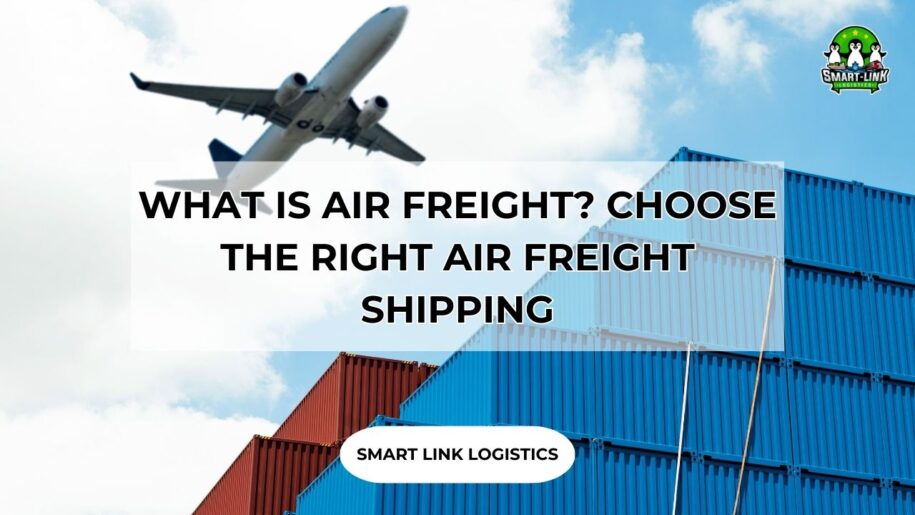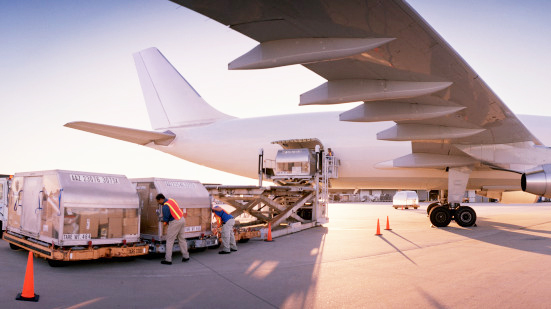
WHAT IS AIR FREIGHT? CHOOSE THE RIGHT AIR FREIGHT SHIPPING
The world has become more interconnected, with products once deemed exotic now arriving at your doorstep within days, thanks to the marvels of air freight and air shipping.
However, what exactly do these terms mean, and are they distinct? Let us delve into the realm of air freight logistics, exploring their definitions, advantages, and the scenarios in which you should consider using air freight.
1. What is air freight?
Air freight and air shipping fundamentally refer to the transportation of goods by air. Though often used interchangeably, they do have a slight yet significant distinction:
- Air Shipping: Encompasses all goods transported by air, including luggage on passenger flights, parcels via express services, and large shipments on cargo planes.
- Air Freight: Specifically pertains to the commercial transportation of goods by air, involving the associated costs, logistics, and regulatory considerations.
In this article, our focus will be primarily on air freight. For simplicity, we will use the terms air freight, air shipping, and air freight shipping interchangeably within the same context.
2. Common products shipped by air
With a market size exceeding $175 billion, the air cargo industry has become a crucial component of global trade, particularly with the growth of e-commerce. Various industries rely on air freight due to its rapid delivery times:
- E-commerce: Facilitates expedited shipping for high-value items such as electronics, luxury goods, and popular fashion products.
- Manufacturing: Transports time-sensitive components essential for production lines, supporting just-in-time inventory management.
- Humanitarian Aid: Delivers relief supplies to disaster areas, including medicines, food, water, and shelter materials, ensuring prompt emergency response.
- Aerospace and Defense: Supplies avionics, aircraft engines, and military equipment such as missiles and drones, which are vital for armed forces.
- Perishables: Quickly transports produce, seafood, dairy items, chemicals, plants, and flowers to markets, reducing spoilage and maintaining freshness.
- Pharmaceuticals: Ships temperature-sensitive vaccines globally, playing a critical role during health crises like the COVID-19 pandemic.
Compared to other freight transportation modes, air freight is the fastest method for long-distance shipping, making it indispensable for businesses handling time-sensitive goods.
3. Typical journey of an air freight shipment

Despite appearing straightforward, air freight involves a complex process. From pre-shipment preparation to delivery, air cargo goes through several stages, including:
- Booking & Planning: Securing the best rate and logistics with a carrier.
- Prepping & Packing: Packaging goods securely in compliance with regulations and preparing necessary shipping documentation.
- Collection & Consolidation: Collecting your shipment and combining it with others for efficient transport.
- Customs Clearance: Meeting both import and export requirements, including inspections and potential duties.
- Air Travel: Transporting your shipment on a dedicated cargo plane selected based on size, weight, and urgency.
- Arrival & Delivery: Completing customs clearance at the destination airport before the final delivery to your specified location.
4. Advantages and disadvantages of air freight shipping
Benefits of air freight shipping
Air shipping excels in scenarios where speed and efficiency are critical. Its benefits include:
- Reduced Transit Time: Compared to ocean freight, air transport is much faster, often delivering international shipments within 24-48 hours. This is crucial for perishable, pharmaceutical, and high-value items.
- Global Reach: Airplanes can access virtually any location, facilitating global trade. This makes air freight ideal for businesses looking to enter and expand into international markets quickly and efficiently.
- Reduced Damage Risks: Air travel is generally smoother and faster than sea or road transportation, leading to a lower risk of damage or spoilage during transit.
- Improved Inventory Management: Faster deliveries allow businesses to maintain learner inventory levels, even enabling just-in-time inventories, which reduce storage costs and improve cash flow.
- High Security: Stringent airport security measures and dedicated cargo handling processes provide protection against theft, tampering, or damage. Enhanced tracking capabilities also offer greater control and predictability for air cargo.
Considerations for air shipments
The speed of air freight comes at a premium. It is typically the most expensive mode of transportation due to high fuel costs, airport fees, and specialized handling requirements. Air freight is not suitable for large, bulky, or heavy shipments and has limited cargo capacity. Additionally, it has a higher carbon footprint compared to other transportation methods, raising sustainability concerns. It is essential to carefully assess your needs and budget before opting for air freight.
In conclusion, while air freight offers unparalleled speed and efficiency for transporting goods, it is essential to weigh these benefits against the higher costs and environmental impact. By understanding the nuances of air freight and air shipping, businesses can make informed decisions that align with their logistical needs and budget constraints. At Smart Link Logistics, we are dedicated to providing comprehensive support and expert guidance to help you navigate the complexities of air freight, ensuring your goods reach their destination swiftly and securely.
Hotline: + 84 903 354 157 to know more about our services

If you require assistance with international import and export of goods, please contact our team at Smartlink Logistics. We are available to provide you with professional guidance on our services and the necessary customs procedures.
SMART LINK: BEST SERVICE BEST YOU


































